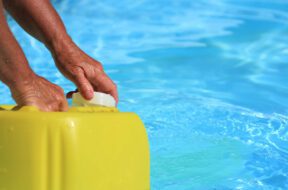
In this quick guide, we’ll answer the question “can you over shock a pool” and unveil the factors to consider when shocking a pool.
Pool Calculator provides the necessary tools and pool maintenance information you need to keep your swimming pool & hot tub water clear, clean and balanced.
Use the calculator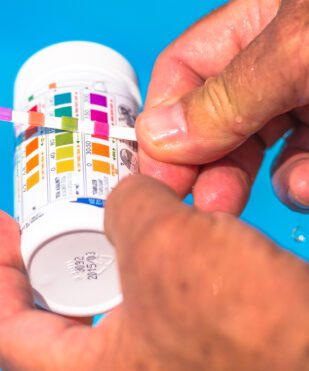
Testing your pool helps keep your water safe from viruses, bacteria, and algae, and ensures chemical levels are safe and comfortable.

In this quick guide, we’ll answer the question “can you over shock a pool” and unveil the factors to consider when shocking a pool.
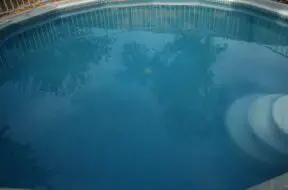
There are few things that can spoil your day more than cloudy water in your pool. Testing your pool chemistry can help find the problem.
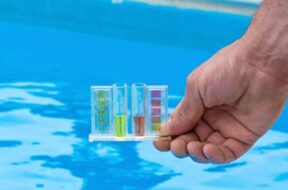
Want to know what the different types of chlorine mean? Read on to learn about Free chlorine, combined Chlorine, and Total chlorine.
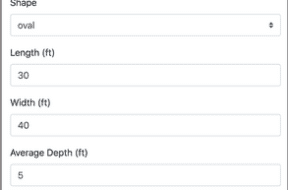
The Pool Volume Calculator makes it easy to calculate the volume of rectangular, oval, and circular pools quickly.
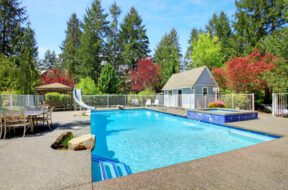
Saltwater and chlorine are the two most common types of pool sanitation. Learn the benefits and challenges with both!

Total alkalinity is similar and correlated to cyanuric acid. It’s not as volatile as free chlorine or pH and doesn’t require frequent testing.
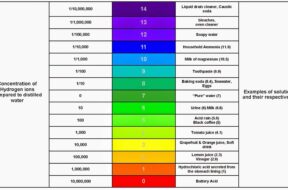
Maintaining both pH and total alkalinity in your swimming pool is important for keeping your pool properly sanitized and non-corrosive. Total alkalinity is to pH what cyanuric acid is to free chlorine. Total alkalinity stabilizes pH levels. The ideal pool pH level is 7.4 to 7.6. The ideal total alkalinity level is 80 to 120 ppm.
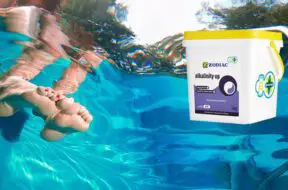
Swimming Pool alkalinity (often called total alkalinity) is a measurement of the concentration of alkaline materials in your pool. Alkaline materials stabilize pH but buffer chlorine sanitation.
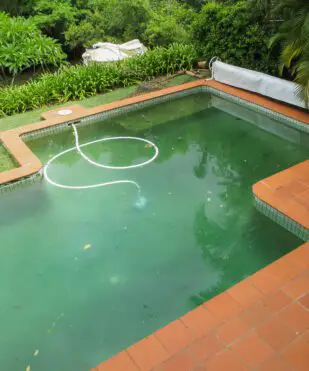
Pool algae is an unfortunate yet common problem many pool owners face. This article describes the types of algae and how you can prevent it.
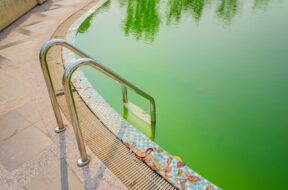
Want to learn more about algaecide? Read on to find out when to add algaecide to your pool maintenance routine and other helpful tips.

In this quick guide, we’ll answer the question “can you over shock a pool” and unveil the factors to consider when shocking a pool.

Maintaining both pH and total alkalinity in your swimming pool is important for keeping your pool properly sanitized and non-corrosive. Total alkalinity is to pH what cyanuric acid is to free chlorine. Total alkalinity stabilizes pH levels. The ideal pool pH level is 7.4 to 7.6. The ideal total alkalinity level is 80 to 120 ppm.
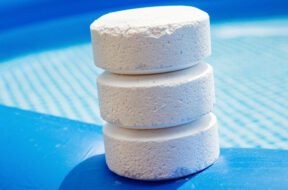
The Association of Pool and Spa Professionals recommends free chlorine levels for both swimming pools and hot tubs be kept between 2.0 and 4.0 ppm. However, the Center for Disease Control recommends free chlorine stay above 1 ppm in pools and 3 ppm in hot tubs.